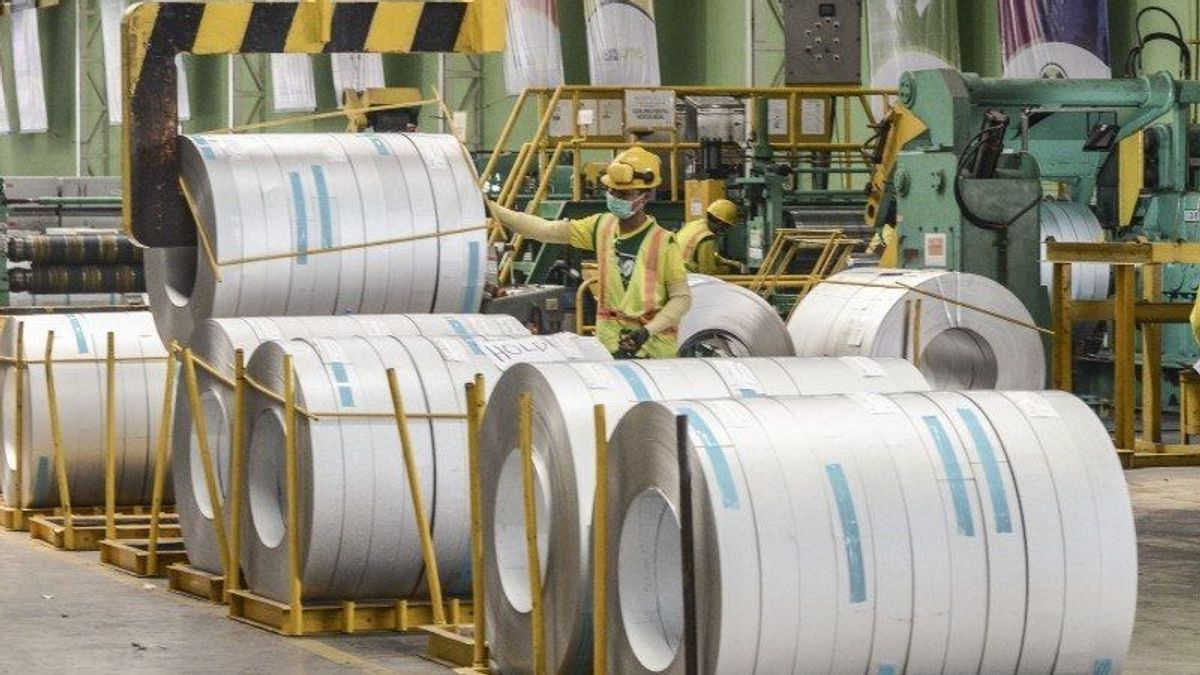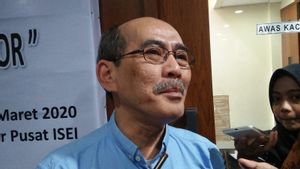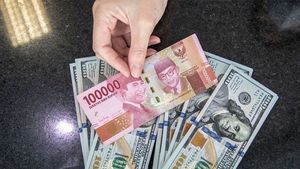JAKARTA - LPEM FEB UI senior researcher and Expert Minister of Finance for Industry and International Trade Kiki Verico denied that Indonesia was experiencing de-dustrialization. According to him, this is not appropriate because the growth of the manufacturing industry is still stretched until the second quarter of 2023.
"Because Indonesia's inflation is low, the rupiah exchange rate is still stable, Indonesia's economic growth is 5 percent, higher than inflation. So, our economy is still resilience," Kiki said in a written statement, quoted Wednesday, August 9.
Kiki said the manufacturing industry is the third largest sector in employment. The manufacturing sector is a game changer.
"Indonesia is called emerging because of its growth above world economic growth and becoming the puller of global economic growth. So, the world sees Indonesia as a source of growth," he said.
To maintain this, Kiki suggested that the acceleration of growth needs to be pursued before there is a decline in demographic dividends which is expected to occur in 2037.
"With an economic growth target of 6-7 percent, Indonesia needs to strengthen its structure through manufacturing, so that its contribution can return to the range of 28-30 percent. The growth of the manufacturing sector is expected to reach 9-10 percent," he said.
He added that the steps that need to be taken to increase the contribution of the manufacturing sector are by carrying out structural transformations, such as increasing the quality of manufacturing human resources (HR), and developing a manufacturing inclusive economy for the application of digital technology.
In addition, by making Indonesia the world's manufacturing production base, including in green industry products.
"Indonesia also has the potential to develop aftersales service for industrial products. R&D and innovation activities are highly expected to develop in Indonesia," he said.
Previously reported, Spokesperson for the Ministry of Industry (Kemenperin) Febri Hendri Antoni Arif said the non-oil and gas manufacturing industry contributed 27.4 percent of total tax revenue in the first semester of 2023 which reached Rp970.20 trillion.
SEE ALSO:
"As stated by the Minister of Finance Sri Mulyani Indrawati, tax revenues from the manufacturing sector are experiencing a downward trend. However, indicators still show that the performance of the industrial sector remains productive. This is what we continue to maintain," said Febri in a statement in Jakarta, quoted Wednesday, July 26.
The indicator in question is the Purchasing Manager of the Manufacturing's Index' (PMI) and the Industrial Trust Index (IKI). He mentioned that among the more than 40 countries in the world surveyed by S&P Global, about 61.9 percent of them experienced a contraction shown by PMI below 50.
"Meanwhile, Indonesia for 22 consecutive months or almost two years continues to be in an expansive phase with a manufacturing PMI value of more than 50," he said.
Febri added that the condition of the world manufacturing PMI in January-August 2022 was in an expansion position, but contractive to an average of 49 in September 2022-June 2023.
"However, the Indonesian and ASEAN manufacturing PMI is still better than the world's manufacturing PMI, with an average of more than 50," he explained.
The English, Chinese, Japanese, Arabic, and French versions are automatically generated by the AI. So there may still be inaccuracies in translating, please always see Indonesian as our main language. (system supported by DigitalSiber.id)
















